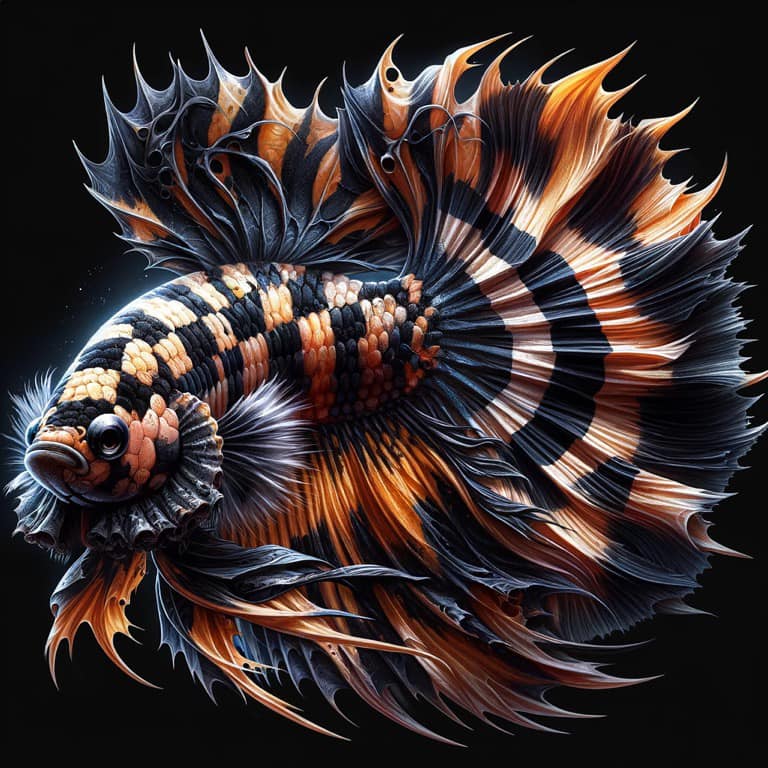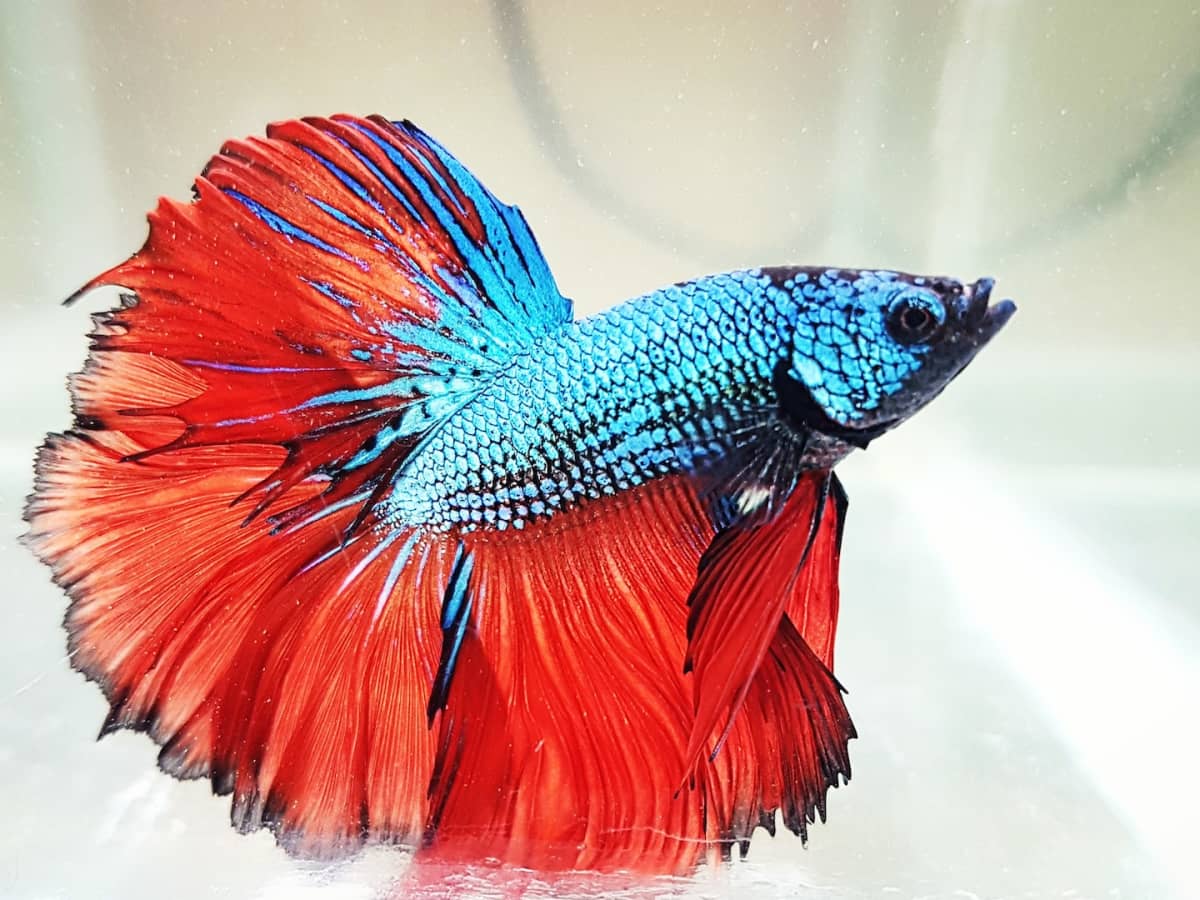Betta Fish Diet: What to Feed Your Betta for Optimum Wellness
Betta Fish Diet: What to Feed Your Betta for Optimum Wellness
Blog Article
All About Betta Fish: Understanding Their Unique Requirements, Actions, and the most effective Practices for Ideal Treatment
Recognizing the unique needs and actions of Betta fish is crucial for any kind of aquarist looking to give ideal treatment. betta fish. As we discover these elements additionally, the effects for both newbie and experienced fish caretakers become increasingly obvious, elevating inquiries about exactly how best to suit these impressive fish in our homes.
Betta Fish Review
Although often admired for their vivid shades and moving fins, Betta fish, clinically understood as Betta splendens, are complex creatures that require certain like grow. Stemming from Southeast Asia, these freshwater fish are known for their territorial nature and one-of-a-kind behaviors. Betta fish show sex-related dimorphism, with men presenting more brilliant colors and longer fins than women.
Their hostile tendencies, especially among males, require mindful consideration when real estate them. Bettas are commonly kept in single-specimen tanks to protect against territorial conflicts. They can exist together peacefully with certain suitable species in larger area tanks, supplied the atmosphere fulfills their demands.

To guarantee optimum treatment, aquarists have to comprehend their distinct behavior traits, nutritional needs, and habitat requirements. betta fish. With proper interest, Betta fish can show their vibrant individualities and thrive in a properly maintained aquarium setting
All-natural Environment and Setting
Betta fish prosper in a diverse variety of natural habitats, largely found in the shallow waters of Southeast Asia, consisting of rice paddies, swamps, and slow-moving streams. These environments are identified by cozy temperature levels, normally in between 75 ° F and 82 ° F(24 ° C and 28 ° C ), and a pH level ranging from 6.5 to 7.5, which is optimal for their wellness and health.
In their natural surroundings, Betta fish are accustomed to dense vegetation, offering both shelter and reproducing grounds. The presence of plants such as floating water lilies and thick turfs not only provides security from predators but additionally adds to the oxygenation of the water, which is crucial for their breathing demands. Furthermore, these environments usually have locations of still water, enabling Betta fish to show their natural behaviors such as bubble nesting.
Understanding the natural habitat of Betta fish is essential for fish tank fanatics. Duplicating these conditions-- through water temperature level, pH balance, and the addition of live plants-- can dramatically boost the overall health and longevity of these captivating fish, guaranteeing they prosper in a home fish tank setting.
Social Behavior and Communications
Comprehending the social actions and communications of Betta fish is important for effective aquarium monitoring. Betta fish, or Siamese combating fish, are known for their special behavior qualities, defined mainly by territoriality and hostility.
Alternatively, women Bettas exhibit much less hostile actions and can exist together in teams, referred to as sororities, if introduced appropriately. It is vital to check their interactions closely, as power structure and dominance can lead to conflicts. Comprehending the browse around these guys dynamics within a Betta area is essential; developing concealing spots and making sure ample room can mitigate aggressiveness.
In addition, Betta fish might also present curiosity and social behaviors towards other species. While they can exist together with specific non-aggressive storage tank companions, it is necessary to select suitable types to prevent anxiety and aggressiveness. Generally, recognizing these social communications is vital to cultivating an unified fish tank setting for Betta fish.
Necessary Care Standards
Giving correct look after Betta fish is crucial to their wellness and health. To ensure a thriving atmosphere, it is important to preserve optimal water conditions. The water temperature level ought to be kept between 76 ° F and 82 ° F(24 ° C to 28 ° C), while pH levels need to vary from 6.5 to 7.5. Routine water changes-- around 25% weekly-- help maintain water high quality.
Betta fish need an appropriate container size; a minimum of 5 gallons is suggested to offer adequate space for swimming and hiding. Consist of designs and plants to create a stimulating setting, however prevent sharp items that might harm their delicate fins.

Last but my sources not least, make certain the container is equipped with a filter to keep the water tidy, yet use a mild filter to stay clear of strong currents that can stress the fish. By complying with these important care guidelines, owners can advertise a healthy and balanced and vivid Betta fish.
Common Health Issues and Solutions
In the care of Betta fish, understanding of usual health problems is necessary for keeping their wellness. To deal with fin rot, boost water problems and think about utilizing a broad-spectrum antibiotic.
One more typical ailment is ich, a parasitic infection characterized by white spots on the fish's body (betta fish). Therapy involves increasing water temperature and adding fish tank salt to the storage tank, as this can help get rid of the parasite
Swim bladder disorder is also frequently observed, bring about buoyancy issues. This problem may develop from overfeeding or constipation. A fasting period of 24-48 hours, complied with by a diet regimen of blanched peas, can offer relief.
Finally, bettas might struggle with velvet illness, indicated by a gold dust-like look on their skin. Therapy commonly requires medication particularly created for outside parasites, alongside improved storage tank hygiene.
Routine monitoring of water official statement parameters, keeping a tidy atmosphere, and providing a well balanced diet regimen are essential safety nets. By attending to these health issues quickly, Betta fish can lead healthier, extra vibrant lives.
Verdict
In summary, effective betta fish treatment requires an understanding of their distinct needs and actions. Giving a suitable setting, consisting of appropriate storage tank dimension and water problems, is vital for their health. In addition, identifying their territorial nature and ensuring sufficient concealing places can stop aggression. Normal surveillance of health and wellness and water quality, in addition to a balanced diet plan, contributes to the durability and vibrancy of betta fish. Abiding by these guidelines will certainly promote a growing aquatic community for these fascinating creatures.
Report this page